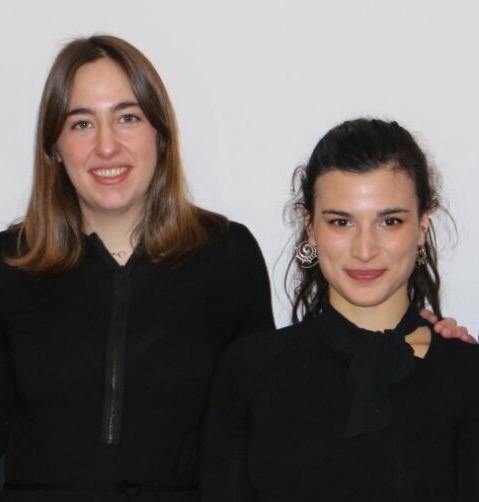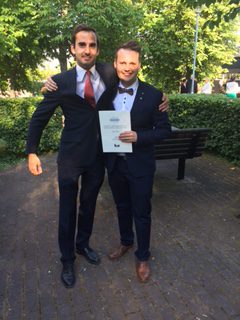- I Svenska ProjektAkademiens årliga uppsatstävling har inför 2017 års pris inkommit 13 uppsatser från inte mindre än åtta lärosäten. Det gör tävlingsjuryns arbete spännande och lärorikt, men också svårt då uppsatserna samtliga är av hög kvalitet.
Juryn har dock enats om att välja ut tre av uppsatserna till en finalomgång, där de läses av både forskningsutskottets ledamöter och ytterligare andra akademiledamöter. Vinnaren presenteras vid Akademiens årssammankomst den 25 april. De uppsatser det handlar om är de följande, utan någon inbördes ordning:
 Susan Jane Weeks och Francesca Clotilde Scialdone, Umeå School of Business and Economics (USBE): Management of Uncertain Resources in Film Festival Organisations: a first European Picture. The purpose of this thesis is to investigate how film festivals use project management techniques to manage uncertain resources. Fourteen case studies are used to explore the project management techniques used by film festivals across Europe. An extensive theoretical framework brings together a number of key fields for the first time and provides an informative background to the study. Based on this theoretical framework a conceptual model was developed, ‘the film festival ‘smoothie’ model’, which provides a guide for data collection and analysis. The research focuses on traditional and contemporary project management techniques, but also contextual factors that impact upon the project management of film festivals. The findings show that a creative, reactive and flexible approach to project management is vital within film festival organisations and supports earlier research calling for a rethinking of project management to consider the growing presence of ‘soft projects’ and contextual factors of projects.
Susan Jane Weeks och Francesca Clotilde Scialdone, Umeå School of Business and Economics (USBE): Management of Uncertain Resources in Film Festival Organisations: a first European Picture. The purpose of this thesis is to investigate how film festivals use project management techniques to manage uncertain resources. Fourteen case studies are used to explore the project management techniques used by film festivals across Europe. An extensive theoretical framework brings together a number of key fields for the first time and provides an informative background to the study. Based on this theoretical framework a conceptual model was developed, ‘the film festival ‘smoothie’ model’, which provides a guide for data collection and analysis. The research focuses on traditional and contemporary project management techniques, but also contextual factors that impact upon the project management of film festivals. The findings show that a creative, reactive and flexible approach to project management is vital within film festival organisations and supports earlier research calling for a rethinking of project management to consider the growing presence of ‘soft projects’ and contextual factors of projects.
 Jonathan Adut, Kungl Tekniska Högskolan: Applying agile approaches in public construction and civil engineering projects.Project management of today is no longer about managing the sequence of steps required to complete the project on time. It is about systematically incorporating the voice of the customer, creating a disciplined way of prioritising effort and resolving trade-offs, working concurrently on all aspects of the project in multi-functional teams. Studying the concept of Agile Project Management allows for just that.
Jonathan Adut, Kungl Tekniska Högskolan: Applying agile approaches in public construction and civil engineering projects.Project management of today is no longer about managing the sequence of steps required to complete the project on time. It is about systematically incorporating the voice of the customer, creating a disciplined way of prioritising effort and resolving trade-offs, working concurrently on all aspects of the project in multi-functional teams. Studying the concept of Agile Project Management allows for just that.
Agile approaches allow the project management process to be a vivid and continuously updated. Agile project management provides project managers with methods, tools and approaches to aid both the project manager and project client to engage in a more efficient manner, allowing for more open communication, feedback sessions and the notion of pursuing a shared goal towards successful project management.
The purpose of this study was to investigate whether project management within the C&CE industry – which so far mostly has been carried out in a traditional way – could benefit from utilising agile approaches. By studying both traditional project management and observing how projects were run at WSP Management, as well as interviewing experienced senior project managers, the identification of possible agile approaches was identified. Combining the foundation of knowledge about the traditional sense of project management with agile theory, value & principles and interviews with agile experts – it became evident that the possibilities of utilising and benefitting from agile approaches in the C&CE industry is viable.
 Edgaras Rakevičius och Louis Auzias, Linköpings Universitet: The process of knowledge integration:
Edgaras Rakevičius och Louis Auzias, Linköpings Universitet: The process of knowledge integration:
A case study of a change project. Knowledge integration is rather a new and not fully explored concept in business management. However there are many scholars, who have researched knowledge integration in recent decades. This thesis is conducted in order to draw attention towards knowledge integration and its processual phenomena. The interest of this research is to find out how does the knowledge integration process change during the evolution of project. For this purpose, we have researched a real company’s project, the objective of which is to reach the knowledge integration amongst different back office teams in a newly established Shared Service Centre (SSC). In this essence it becomes visible, that as project evolves, the process of knowledge integration adopts a non-lineal progression. This in later perspective builds a reason to argue that the more knowledge is integrated more challenges occur in this integration process and as a result more mechanism are needed to be adopted to sustain successful knowledge integration in the project.
